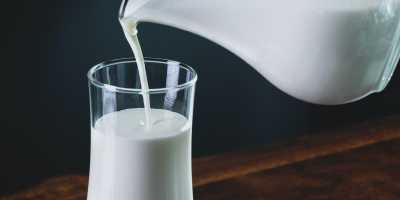Vitamin B2 (Riboflavin): Advantages and Disadvantages
Vitamin B2, also known as riboflavin is a water-soluble vitamin that is essential for a variety of bodily functions. It is involved in the metabolism of carbohydrates, fats, and proteins, and is necessary for the production of energy. Vitamin B2 is also important for maintaining healthy skin, eyes and nervous system.
While riboflavin can be obtained through a balanced diet, some people may choose to take supplements to meet their daily needs. However like any supplement taking too much of vitamin B2 can have potential disadvantages and risks. In this article we will explore the advantages and disadvantages of vitamin B2, as well as its natural sources, to help you make an informed decision about your dietary needs.
10 health benefits of Vitamin B2
-
Helps convert food into energy
Vitamin B2 plays a critical role in converting carbohydrates proteins and fats from food into energy that the body can use.
-
Maintains healthy skin and eyes
Riboflavin is essential for maintaining healthy skin, eyes, and mucous membranes. It can help prevent or reduce the severity of conditions like acne, dermatitis and cataracts.
-
Supports healthy immune system function
Vitamin B2 is important for maintaining a healthy immune system. It can help protect the body against infections, especially those that affect the skin, eyes and respiratory tract.
-
Assists in the production of red blood cells
Riboflavin is necessary for the production of red blood cells, which transport oxygen throughout the body. A deficiency in this vitamin can lead to anemia.
-
May reduce the risk of certain cancers
Studies suggest that riboflavin may reduce the risk of certain cancers such as cervical cancer and esophageal cancer.
-
May help prevent migraine headaches
Research has shown that riboflavin may help prevent migraine headaches, possibly by improving mitochondrial function and reducing inflammation.
-
May improve athletic performance
Vitamin B2 is important for energy metabolism, and some studies suggest that it may improve athletic performance by reducing muscle fatigue and increasing endurance.
-
May improve mood and reduce symptoms of depression
Some studies suggest that riboflavin may improve mood and reduce symptoms of depression. This may be due to its role in energy production and neurotransmitter synthesis.
-
May help prevent and treat preeclampsia
Preeclampsia is a potentially dangerous pregnancy complication. Some studies suggest that riboflavin supplements may help prevent or treat preeclampsia by improving endothelial function and reducing inflammation.
-
May improve skin conditions like eczema
Research has shown that riboflavin may help improve skin conditions like eczema, possibly by reducing oxidative stress and inflammation.
Sources of Vitamin B2 in Natural Foods
-
Dairy products
Dairy products like milk cheese, and yogurt are rich sources of vitamin B2. One cup of milk contains about 0.5 mg of riboflavin while one ounce of cheddar cheese contains about 0.2 mg.
-
Eggs
Eggs are a good source of vitamin B2, with one large egg containing about 0.2 mg of riboflavin.
-
Meat and poultry
Meat and poultry are also good sources of vitamin B2. For example, a 3-ounce serving of beef liver contains about 2.9 mg of riboflavin, while a 3-ounce serving of chicken breast contains about 0.2 mg.
-
Leafy greens
Leafy greens like spinach kale, and collard greens contain small amounts of vitamin B2. For example one cup of cooked spinach contains about 0.4 mg of riboflavin.
-
Whole grains
Whole grains like brown rice, quinoa, and whole wheat bread are good sources of vitamin B2. For example, one cup of cooked brown rice contains about 0.2 mg of riboflavin.
-
Mushrooms
Mushrooms like shiitake and portobello contain small amounts of vitamin B2. For example, one cup of sliced portobello mushrooms contains about 0.5 mg of riboflavin.
-
Nuts and seeds
Nuts and seeds like almonds sunflower seeds, and sesame seeds contain small amounts of vitamin B2. For example one ounce of almonds contains about 0.3 mg of riboflavin.
Risks of Excessive Vitamin B2 Intake
-
Potential for gastrointestinal side effects
Taking high doses of vitamin B2 can cause gastrointestinal side effects like nausea vomiting, and diarrhea.
-
May mask a vitamin B12 deficiency
Vitamin B2 can mask the symptoms of a vitamin B12 deficiency, which can lead to neurological damage if left untreated.
-
Possible interactions with medications
Vitamin B2 can interact with certain medications, such as tetracycline antibiotics and antipsychotics, potentially reducing their effectiveness.
-
Potential for allergic reactions
Some people may be allergic to vitamin B2 supplements, which can cause symptoms like hives itching, and difficulty breathing.
-
Possible interference with lab tests
High doses of vitamin B2 can interfere with certain lab tests such as urine tests for glucose and ketones.
-
May increase the risk of kidney stones
There is some evidence that high doses of vitamin B2 may increase the risk of kidney stones in susceptible individuals.
Vitamin B2, or riboflavin, is an important nutrient that can offer a wide range of health benefits when consumed in appropriate amounts. Taking too much of this vitamin can lead to potential disadvantages and risks. It is always important to seek the advice of a healthcare professional before making any changes to your dietary habits, including the use of supplements. A doctor or a registered dietitian can help you determine the right amount of vitamin B2 that you need based on your individual needs and health status. So while this article can provide valuable information about vitamin B2 it is always best to consult a healthcare professional for personalized advice on your health and well-being.
This article is part from 10 Essential Vitamins: Benefits, Side Effects, and Sources
